The Book at War: Libraries and Readers in an Age of Conflict
£23.70£28.50 (-17%)
‘Magisterial’ Kathryn Hughes, The Sunday Times (A Sunday Times Book of the Week)
‘Rich, authoritative and highly readable, Andrew Pettegree’s tour de force will appeal to anyone for whom, whatever the circumstances, books are an abiding, indispensable part of life.’ David Kynaston
Chairman Mao was a librarian. Stalin was a published poet. Evelyn Waugh served as a commando – before leaving to write Brideshead Revisited. Since the advent of modern warfare, books have all too often found themselves on the frontline.
In The Book at War, acclaimed historian Andrew Pettegree traces the surprising ways in which written culture – from travel guides and scientific papers to Biggles and Anne Frank – has shaped, and been shaped, by the conflicts of the modern age.
From the American Civil War to the invasion of Ukraine, books, authors and readers have gone to war – and in the process become both deadly weapons and our most persuasive arguments for peace.
Read more
Additional information
| Publisher | Main edition (5 Oct. 2023), Profile Books |
|---|---|
| Language | English |
| Hardcover | 480 pages |
| ISBN-10 | 1800814933 |
| ISBN-13 | 978-1800814936 |
| Dimensions | 16.4 x 4.6 x 24 cm |

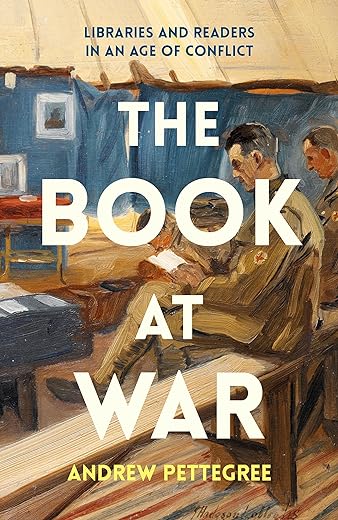
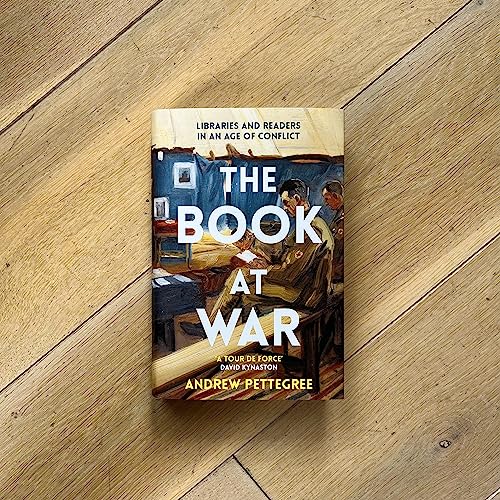
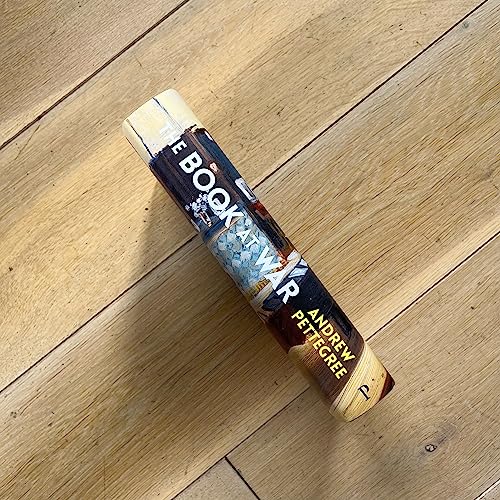




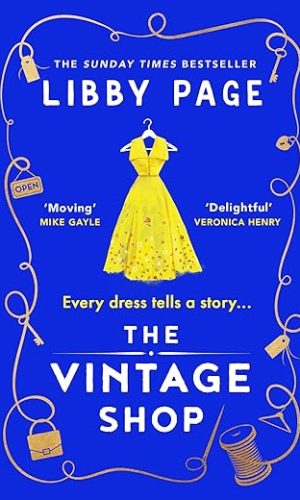
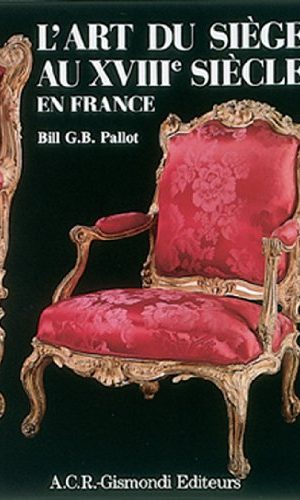

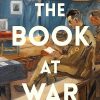
by S Riaz
With a world which, currently, seems to be in a constant state of conflict, this is, perhaps, a timely look at the history of books, libraries and reading and how they have been used, misused, distrusted and brought comfort through the time of the American Civil war to the Cold War. However, as the author says, increased literacy means that much of this book focuses on the time from the First and Second World Wars. Increased literacy did not only read more people engaging with books, but also more political engagement from the population.
Andrew Pettegree looks at how publications such as, ‘The Boys Own Paper,’ was used as propaganda to help rally the cause to more unpopular conflicts (as well as providing a more moral reply to the ‘penny dreadfuls’ which were cheap and thrilling), through the use of purloined code books to crack the Enigma code at Bletchley Park, weaving through forces papers, comic strips, the increased popularity of libraries, how author’s assisted the war effort, books that were banned, blacklisted and used for propaganda. There is also an interesting section on Penguin paperbacks, which were a change much resisted by the publishing industry, in much the way that currently ebooks have shaken and changed publishing. The cheapness, lightness and portability of such paperback books saw them beloved by soldiers fighting, those in POW camps and were also a cheap form of entertainment in bomb shelters, although many on the Home Front read less as war work and lack of sleep meant concentration and leisure time lessened. Also, children’s books suffered, with the little paper available for publishing used to promote established authors, rather than risking new fiction.
This is not only an interesting account of the importance of books and readers during conflicts, but also of how feared books can be by governments and how countries react to such fears. One of the most interesting things to me was how Germany banned so many books in WWII, while England decided to just leave Adolf Hitler’s infamous memoir in print and on shelves (probably thinking that reading it would only strengthen resolve) in much the same way they decided against banning progaganda radio shows by Lord Haw-Haw on the basis that it would only make it more popular. Considering it best to just pretend such things were not a threat and allow them to be read and listened to turned out to be a successful decision. However, with many countries now banning more and more books, and libraries under threat, this is also a timely reminder of how much comfort, knowledge and joy books can bring when times are bad.